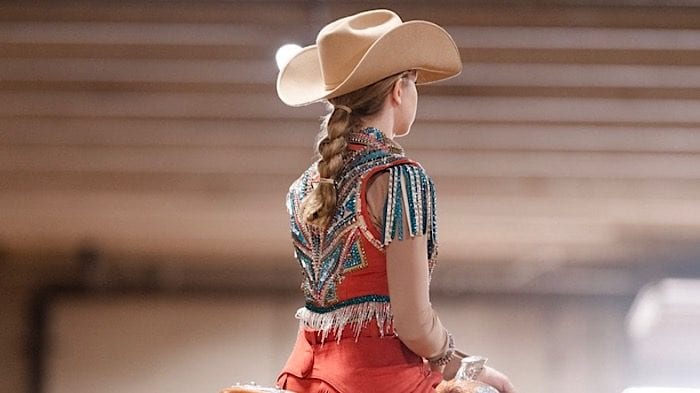The trailer is loaded with clean and shiny tack. Your horse is groomed, trimmed and swaddled in blankets and snuggies for the night. Your show clothes are pressed and your boots have a shine on them for the next morning.
You go to bed early only to lie awake all night, partially from the excitement of going to your first show and partly from dread and fear of the “what might go wrong” gremlins.
Show nerves are a normal part of the showing process, but you can make them a non-issue on the day of the show by utilizing these steps to be mentally prepared.
1) An ounce of preparation is worth a pound of cure
Have a plan. It sounds simple, but it takes time and dedication to do this horse show thing we do. Have a plan, whether it is a checklist of what you need to pack or a timeline of what needs to be done, either one will help free your mind from an unneeded burden on show day.
A checklist can help you from forgetting essential items that need to be packed. A timeline for the day/morning of the show that is flexible will help keep you focused amid all the hustle. Know what items are must do’s on your timeline and what is expendable if unforeseen issues pop up that take additional time to address.
Prior to the show, review the class list so you can decide what classes are appropriate to enter for your level of showing. If you use a trainer, it’s good to discuss with them their thoughts on your skill and ability level about classes offered well before the morning of the class.
It’s also a huge time saver in the morning if you pre-fill your entry forms and have copies of any needed documents before the morning of the show. Sometimes everyone gets in the registration line at the same time, which can push back your schedule of what you need to do in the morning. Pre-entry and pre-filling forms is a great way to save time and helps alleviate long registration lines.
2) Set realistic goals
This is one of the biggest causes of show anxiety. Take a hard look and be realistic about your skill level and ability. Bounce ideas off of your trainer or a trusted horse friend. If you and your horse have sat idle all winter, just getting to the show is a realistic goal.
Winning isn’t everything, so don’t make it the only goal you have for your show. If winning is your only goal, you will miss all of those small victories that come along.
Maybe your horse always spooks at a particular corner when the judge is in the ring. A realistic goal would be to finish your class without a spook in that corner, your placement in the class doesn’t reflect in that goal, so no matter where you place, you can celebrate a victory for that day.
3) Visualize and reject the negative narrative
Everyone struggles with that negative voice in their head that tells them they aren’t good enough or that they should quit. We are our own harshest critics. Recognize when your inner narrative is getting negative and stop that conversation dead. This also coincides with setting realistic goals.
If you anticipate that your horse will only spook at the 3rd corner when the judge is in the ring, you will tense up as you reach that corner. Your horse will probably spook because if feels you tense up.
Visualize riding through the turn without an issue, take a deep breath and make that positive outcome your narrative. Visualization of a strong pattern or ride is an excellent tool for overcoming those negative thoughts. If you can see it working in your mind, it will become easier to achieve in the ring.
4) Build your pit crew
Surround yourself with positive and supportive people. If your trainer has other exhibitors at the show, work together to create a team. If you show by yourself, bring your friends and family around, as long as they are supportive and kind and can help you relax or recover when things go wrong. Having your squad there can help make the day a great experience.
5) Find decompression time
Depending on the show, the pace can be quick in-between classes. With speaker systems calling placings and classes and people coming and going, it can be overwhelming. If you can, find time between classes or during lunch breaks to find a quiet place to decompress and review how the show is going.
Are you struggling with negative thoughts? Is your horse out of sorts at this show? When you get a moment to yourself, do a mental self-check and see how you are doing and what you need to do to make the rest of the show enjoyable.
6) When things fall apart, trust yourself and your team
Sometimes things go wrong. It’s happened to everyone who has ever worked with a horse. They do have a mind of their own after all. Don’t let failure become a crushing blow. Decompress and level set with your pit crew. Look for the small victories that have come during the day like just getting to the show without a trailering issue, making it to your classes on time, completing segments of an intricate pattern or not forgetting to bring some of your gear to the show with you.
****
Embrace the small wins and showing will become more rewarding and less stressful. Showing is only a tiny part of the whole journey we take with our horses. Winning is great, and we all love to win. But, don’t let winning overshadow the time we spend with friends, family and our horses that make the journey worth taking.








